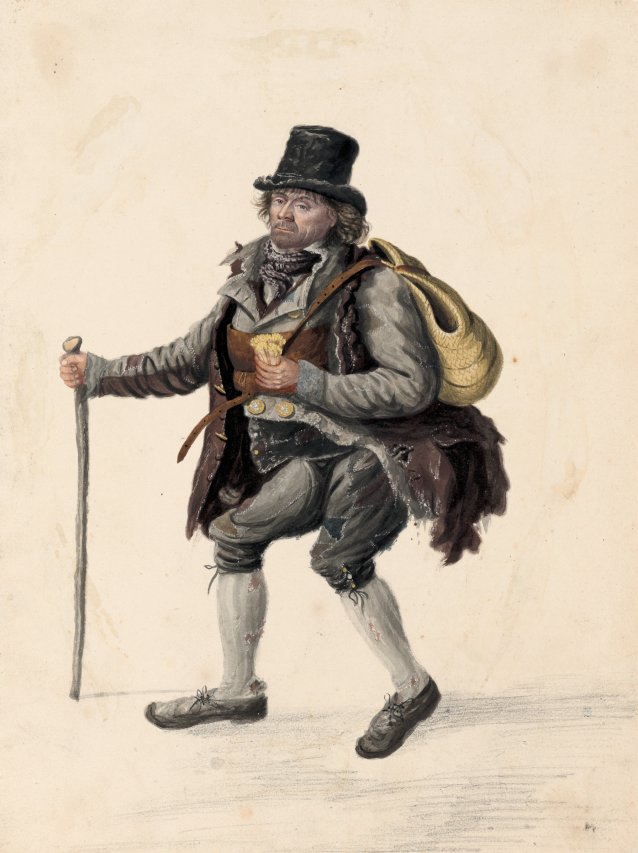
The British Parliament’s Act for the Relief of the Poor of 1601 lasted (with amendments) for well over 200 years – until 1834. Under the so-called ‘Old Poor Law’, able-bodied people who were found begging on the streets could be arrested, whipped, placed in the stocks or confined in a House of Correction, and forcibly relocated to their home parish, their ‘place of settlement’. In order to avoid such stigma and punishment, the poorest of the poor often pretended to commerce, offering the most marginal of goods and services.
Many of them sold the cheapest and most commonplace of household articles – the old ‘brimstone’ (sulphur) matches that retailed at five bunches for a ha’penny.
In populous urban areas, where mud, horse manure and other muck dirtied the roadways, other beggars would sweep clear a path or crossing for middle-class pedestrians in the hope they would be given a small gratuity.